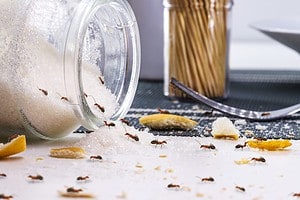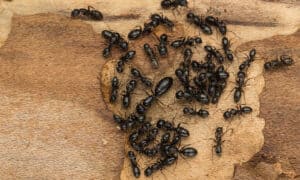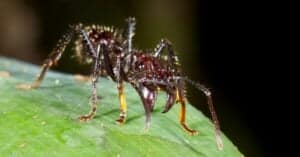Ants in your home are a nuisance no matter what species they are. Carpenter ants, however, bring both an annoying problem and potential structural damage to the inside of your home.
If you’re looking for a way to get rid of carpenter ants naturally, a few considerations exist that you’ll need to think about. First and foremost — how effective is the solution? Second, you’ll want to consider how much time, energy, and effort a natural solution takes.
AZ Animals consulted multiple pest control experts to discover the 10 best, effective ways to get rid of carpenter ants naturally. Shawn Gleason, a seasoned entomologist, certified pesticide applicator, and creator of Bugs Encyclopedia; Bob Gilbert, a certified entomologist working with Blue Sky Pest Control; Allan Bossel, owner and operator of Michigan Bed Bug Specialists; and Mo Samir, a senior technician with Bugwise Pest Control lent their expertise to this topic.

Keep reading to discover a method that might work for you.
Citrus Scents

Overpowering scents can disrupt pheromones that ants use to navigate.
©hachiware/iStock via Getty Images
Several scents exist that bugs, insects, and other invertebrates avoid at every turn. One of the best to use against carpenter ants is citrus.
“Carpenter ants … are particularly attracted to moist wood and can be repelled by certain scents,” said Gleason. “Citrus, peppermint, and cinnamon are among the odors they dislike. By applying essential oils of these scents around entry points and affected areas, homeowners can create an effective deterrent.”
Citrus’ strong smell, along with a few other scents, almost completely erases pheromone trails that the ants leave themselves. Without the trail, the ants “walk blind” to and from their nest. Oranges and lemons work well.
Remove Decaying Wood
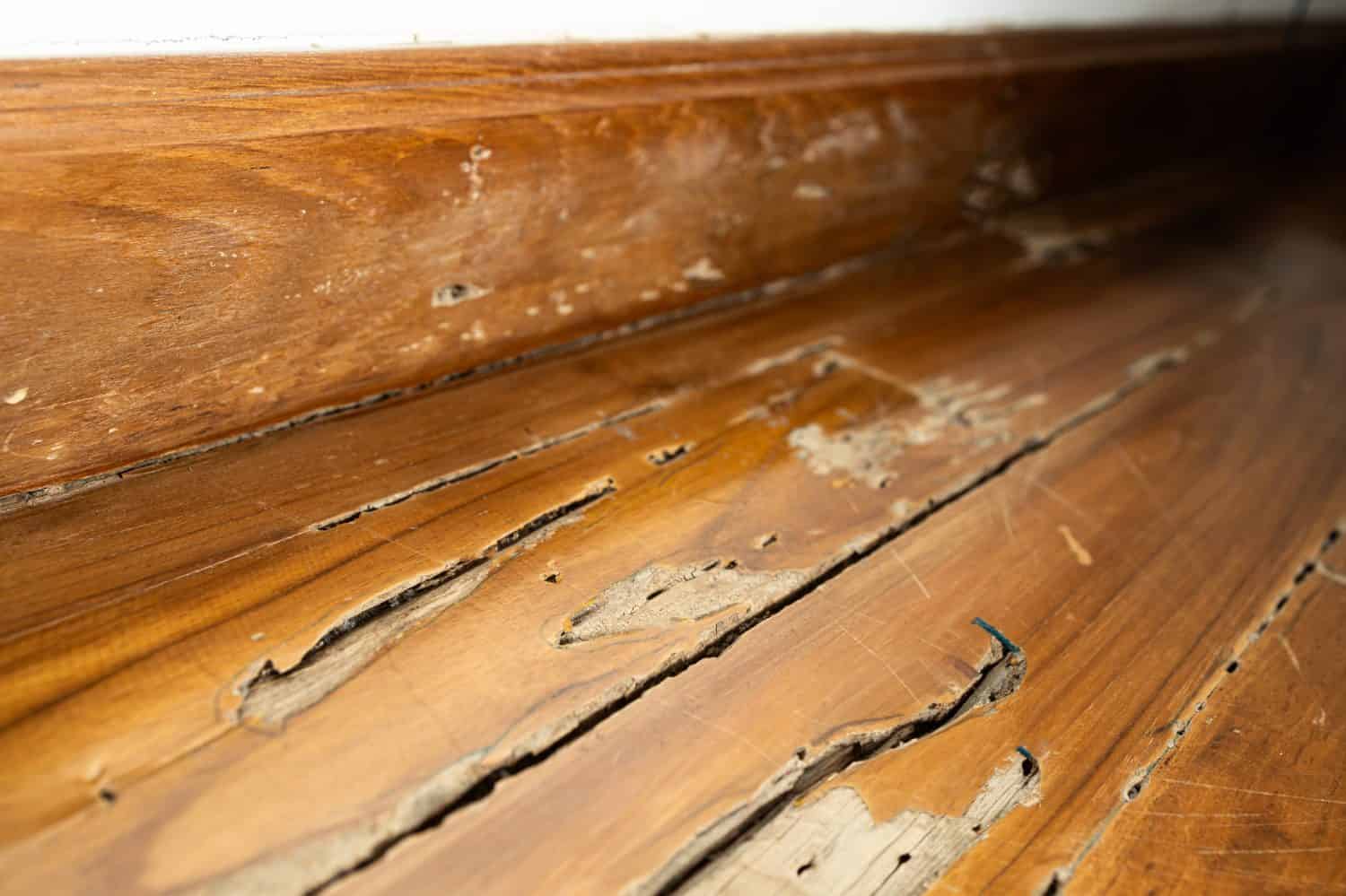
Carpenter ants prefer soft wood to dry wood.
©CGN089/Shutterstock.com
Carpenter ants get their name from how they make nests — they chew away wood. Because they’re not termites, they don’t actually eat the wood to survive. They chew at wood to carve out a nest for their colony. As such, they prefer easier wood to chew through, like rotting or decaying wood with fungus on it.
Peppermint Scents

Peppermint is too strong for carpenter ants to handle.
©iStock.com/Rawf8
Like citrus, peppermint is another scent that homeowners can use to deter carpenter ants from their homes. Using some peppermint essential oil around the ants’ entry points can confuse them, send them to other places, and teach the ants to find another place to make their nest.
Boric Acid
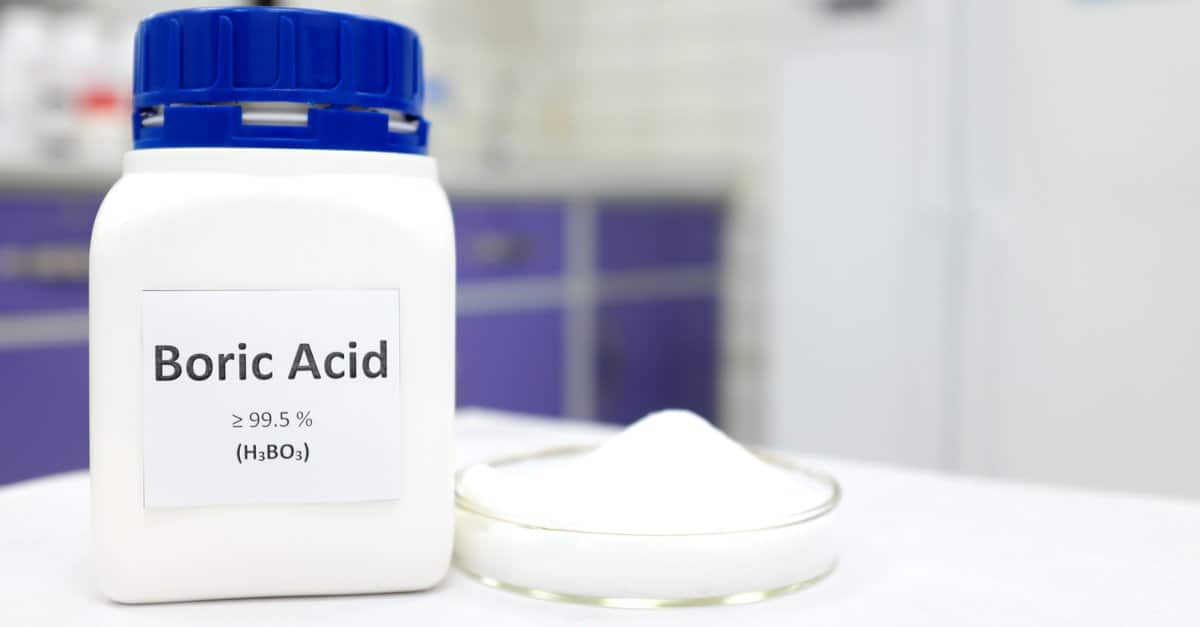
Boric acid is safe to use sparingly around pets — but they shouldn’t seek to ingest it.
©sulit.photos/Shutterstock.com
Interestingly, the natural substance boric acid has a multitude of beneficial uses for health and environmental problems — including an infestation of carpenter ants. First registered as a pesticide in the U.S. in 1948, boric acid is a non-chemical and low-toxicity solution that can rid your home of carpenter ants.
“Boric acid is an effective natural remedy for eliminating carpenter ants. It works by disrupting their digestive system when ingested. Apply a thin layer of boric acid near ant trails and entry points,” instructed Samir.
Diatomaceous Earth

Use the powder to dry out the ants’ exoskeletons.
©FotoHelin/Shutterstock.com
The naturally occurring substance diatomaceous earth has dozens upon dozens of uses as a pesticide despite being non-poisonous. Diatomaceous earth works as a powder that dries out an ant’s (or other invertebrates’) exoskeleton to the point of death. It’s a good choice for a natural solution if you have dogs or cats, as many products of diatomaceous earth exist for these domesticated pets.
White Vinegar

A handy, natural solution to carpenter ants is white vinegar.
©iStock.com/Michelle Lee Photography
“One natural deterrent is the smell of vinegar, which carpenter ants inherently dislike. The acetic acid in vinegar produces a potent odor that can disrupt ants’ pheromone trails. Pheromones play a crucial role in their communication, guiding them to food sources and nest locations,” said Bossel.
When attempting to rid your home of carpenter ants for good with an all-natural solution, one of the main hurdles you’ll face is removing what’s attracting the ants.
“When a solution of equal parts water and white vinegar is sprayed in areas frequented by ants, the acetic acid interferes with their ability to follow established scent trails. This disruption confuses the ants, making it difficult for them to locate their intended destinations,” Bossel finished.
When you spray counters, kitchens, and ant entry points with white vinegar, you’re doing two things: removing the sweet scent of any crumbs/sugar that attracted the ants to your home and placing a foul-smelling barrier between your home and the outside that dissuades ants from coming closer.
Seal Cracks
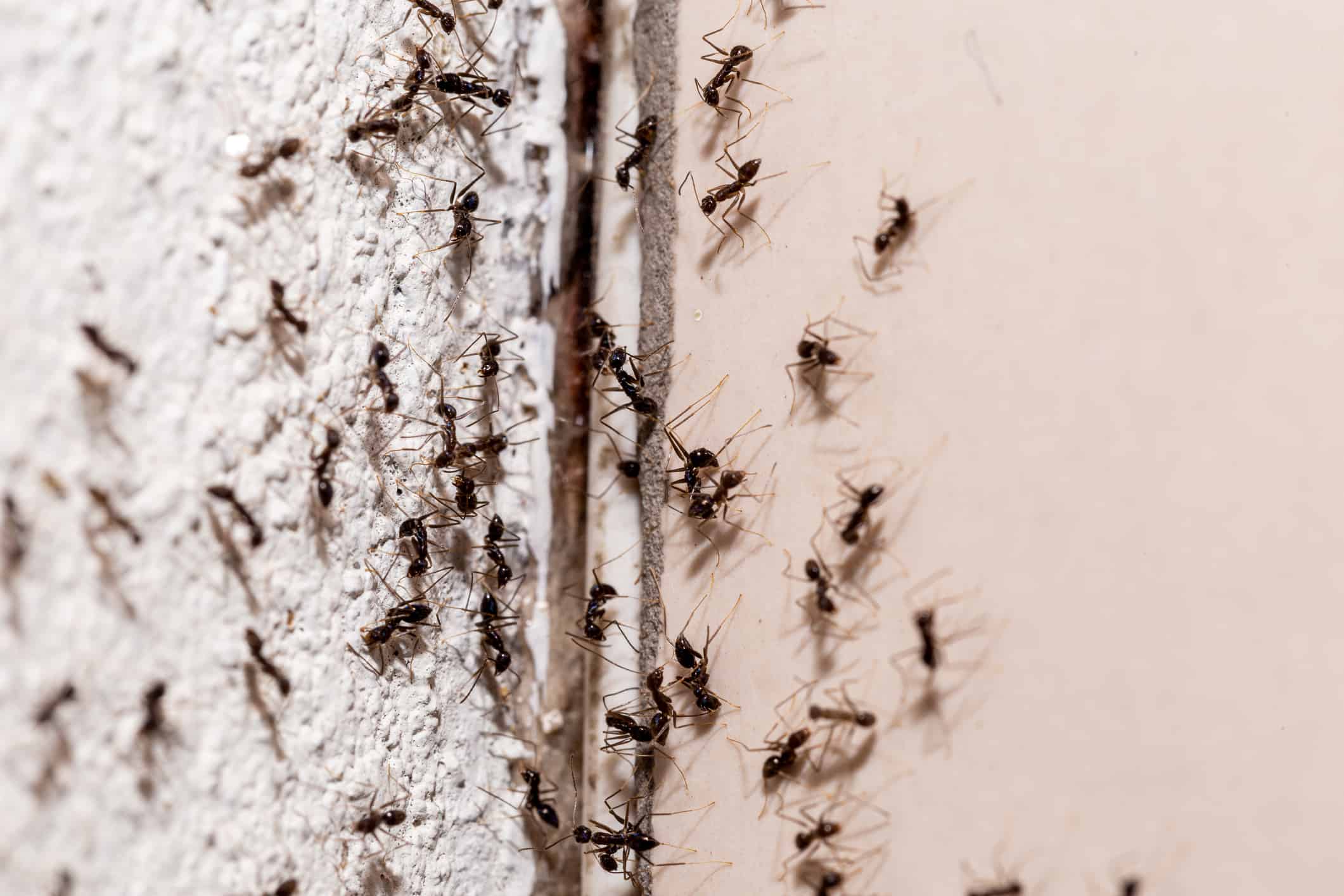
Sealing cracks is a great way to stop any pest from entering your home.
©RHJ/iStock via Getty Images
Similar to any pest problem, sealing cracks remains an effective and all-natural solution to infestations. All you need to do is find the access points the insects use to enter and exit their nest in your home and close it.
Samir added, “Ensure all cracks and gaps in your home’s exterior are sealed, as carpenter ants can enter through tiny openings.”
Cinnamon Scents

Cinnamon can cause ants to choke.
©nblx/Shutterstock.com
Last on the list of the scents that carpenter ants hate is cinnamon. You can use cinnamon essential oil or ground cinnamon in your pest control efforts, but they may have different effects. Cinnamon oil mixed with water and sprayed at entry points will act as a deterrent while ground cinnamon may not be as effective for large numbers. However, according to the experts at Western Exterminator, ants can breathe in the ground cinnamon and asphyxiate.
Remove Leaks
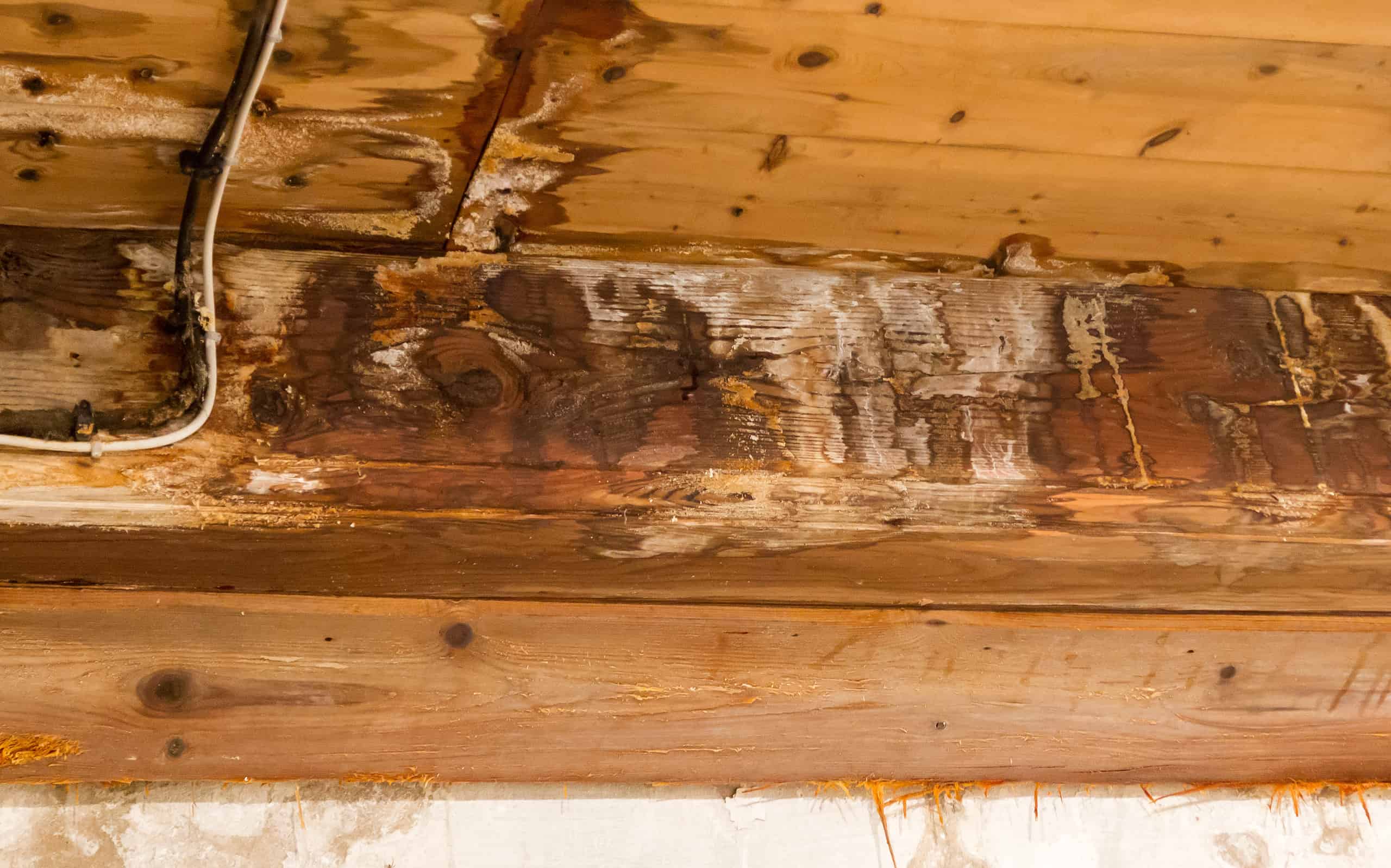
Removing leaks can save you the headache of repairs and exterminator costs.
©michaklootwijk/iStock via Getty Images
Untreated leaks in homes can cause wet rot, a type of decay, to form in as little as seven to 10 days. As mentioned above, wet or fungus-softened wood makes the best nests for carpenter ants.
“Carpenter ants prefer to build their galleries inside moisture-damaged wood. Unlike termites, ants do not eat the wood but simply hollow it out to provide a place for the carpenter ant colony to live. The best preventative to protect your home from carpenter ants, along with many other pests such as termites, is to identify and eliminate the moisture issues,” asserted Gilbert.
When you identify a leak in your home, immediately seal it. Make sure you keep an eye on your water bill as well to determine if you may have a leak under the house you’re unaware of.
Vent Damp Spaces
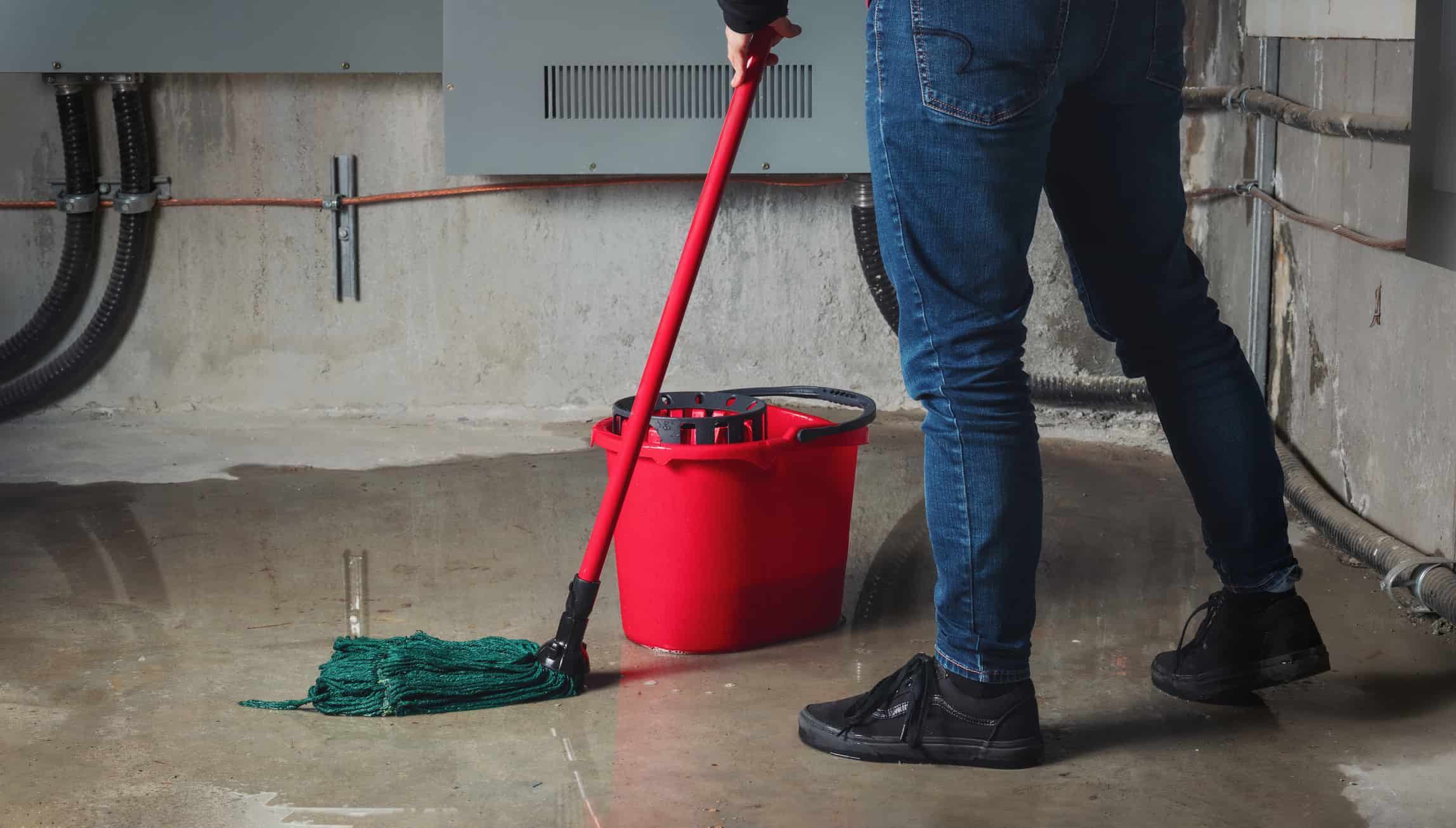
Dampness allows fungus to grow on wood, which will attract carpenter ants.
©Petra Richli/iStock via Getty Images
Sometimes houses have spaces that are consistently damp, whether construction, age, or severe weather is to blame. If you’re aware of a place in your home that constantly has a bit of water or condensation on it, find a way to vent the space. Again, the goal is to eradicate the inviting spaces for carpenter ants — and hard vwood is much more difficult to chew through than soft.
Summary of 10 Ways to Get Rid of Carpenter Ants Naturally
| Number | Method |
|---|---|
| 1 | Citrus Scents |
| 2 | Remove Decaying Wood |
| 3 | Peppermint Scents |
| 4 | Boric Acid |
| 5 | Diatomaceous Earth |
| 6 | White Vinegar |
| 7 | Seal Cracks |
| 8 | Cinnamon Scents |
| 9 | Remove Leaks |
| 10 | Vent Damp Spaces |
The photo featured at the top of this post is © IamBijayaKumar/Shutterstock.com
Thank you for reading! Have some feedback for us? Contact the AZ Animals editorial team.




